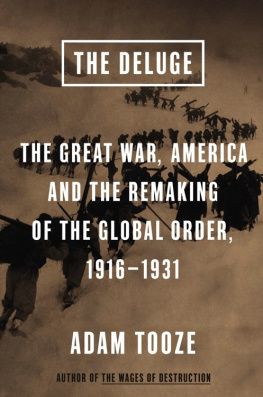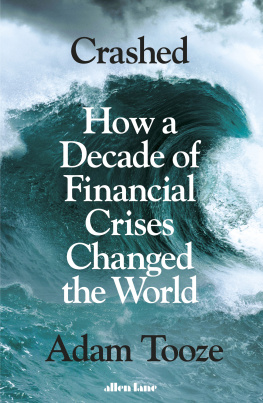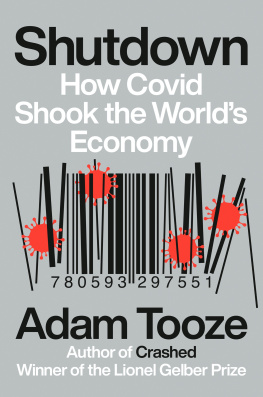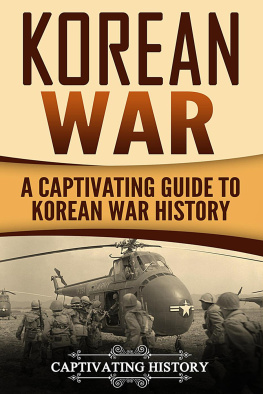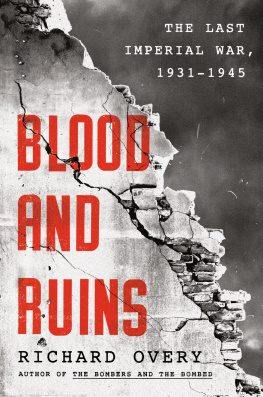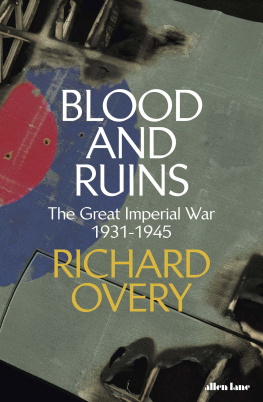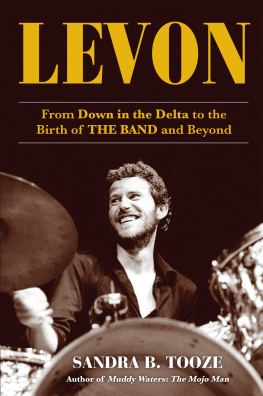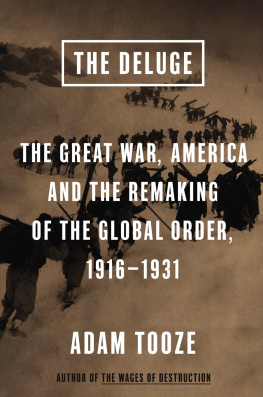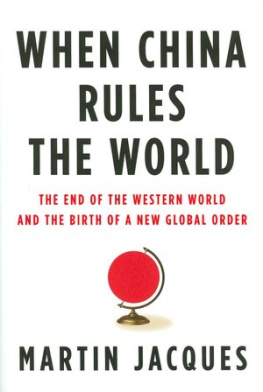The Deluge: The Remaking of World Order
On Christmas Morning 1915 , David Lloyd George, the erstwhile radical liberal, now Minister of Munitions, rose to face a restless crowd of Glaswegian trade unionists. He had come to demand a further round of recruits for the war effort and his message was suitably apocalyptic. The war, he warned them, was remaking the world. It is the deluge, it is a convulsion of Nature... bringing unheard-of changes in the social and industrial fabric. It is a cyclone which is tearing up by the roots the ornamental plants of modern society... It is an earthquake which is upheaving the very rocks of European life. It is one of those seismic disturbances in which nations leap forward or fall backward generations in a single bound. The violence of the Great War had become transformative. By 1918 , World War I had shattered the old empires of Eurasia Tsarist, Habsburg and Ottoman. China was convulsed by civil war. By the early 1920 s the maps of eastern Europe and the Middle East had been redrawn. But dramatic and contentious as they were, these visible changes acquired their full significance from the fact that they were coupled to another deeper, but less conspicuous shift. A new order emerged from the Great War that promised, above the bickering and nationalist grandstanding of the new states, fundamentally to restructure relations between the great powers Britain, France, Italy, Japan, Germany, Russia and the United States. It took geostrategic and historical imagination to comprehend the scale and significance of this power transition. The new order that was in the making was defined in large part by the absent presence of its most defining element the new power of the United States. But on those endowed with such vision, the prospect of this tectonic shift exerted an almost obsessive fascination.
Over the winter of 1928 , ten years after the Great War had ended, three such contemporaries Winston Churchill, Adolf Hitler and Leon Trotsky all had occasion to look back on what had happened. On New Years Day 1929 Churchill, then serving as Chancellor of the Exchequer in the Conservative government of Stanley Baldwin, found time to finish The Aftermath , the concluding volume of his epic history of World War I, The World Crisis . For those familiar with Churchills later histories of World War II , this last volume comes as a surprise. Whereas after 1945 Churchill would coin the phrase a second Thirty Years War to describe the long-running battle with Germany as a single historical unit, in 1929 he struck a very different note.
These, unsurprisingly, were not the terms in which either Hitler or Trotsky would capture their vision of history ten years after the war. In 1 the war veteran and failed-putschist-turned-politician, Adolf Hitler, as well as contesting and losing a general election, was negotiating with his publishers over a follow-up to his first book, Mein Kampf. The second was intended to collect his speeches and writings since 1924 . But since his book sales in 1928 were as disappointing as his electoral performance, Hitlers manuscript never went to press. It has come down to us as his Second Book (Zweites Buch). Churchill, Trotsky and Hitler make for an incongruous, not to say antipathetic, grouping. To some it will seem provocative even to place them in the same conversation. Certainly they were not each others equal as writers, politicians, intellectuals or moral personalities. All the more striking is the way in which at the end of the 1920 s their interpretations of world politics complemented each other.
Hitler and Trotsky recognized the same reality that Churchill did. They too believed that World War I had opened a new phase of world organization. But whereas Churchill took this new reality as cause for celebration, for a communist revolutionary like Trotsky or a national socialist such as Hitler it threatened nothing less than historical oblivion. Superficially, the peace settlements of 1919 might seem to advance the logic of sovereign self-determination that originated in European history in the late Middle Ages. In the nineteenth century this had inspired the formation of new nation states in the Balkans and the unification of Italy and Germany. It had now climaxed in the break-up of the Ottoman, Russian and Habsburg empires. But although sovereignty was multiplied, its content was hollowed out.
The one nation that emerged apparently unscathed and vastly more powerful from the war was the United States. Indeed, so overwhelming was its pre-eminence that it seemed to raise once more the question that had been expelled from the history of Europe in the seventeenth century. Was the United States the universal, world-encompassing empire similar to that which the Catholic Habsburgs had once threatened to establish? The question would haunt the century that followed. From the vantage point of Whitehall, Churchill had felt the force of this point not as a speculative historical vision, but as a practical reality of power. As we shall see, Britains governments in the 1920 s again and again found themselves confronting the painful fact that the United States was a power unlike any other. It had emerged, quite suddenly, as a novel kind of super-state, exercising a veto over the financial and security concerns of the other major states of the world.
Mapping the emergence of this new order of power is the central aim of this book. It requires a particular effort because of the peculiar way in which Americas power manifested itself. In the early twentieth century, Americas leaders were not committed to asserting themselves as a military power, beyond the ocean highways. Their sway was often exercised indirectly and in the form of a latent, potential force rather than an immediate, evident presence. But it was nonetheless real. Tracing the ways in which the world came to terms with Americas new centrality, through the struggle to shape a new order, will be the central preoccupation of this book. It was a struggle that was always multidimensional economic, military and political. It was one that began during the war itself and stretched beyond it into the 1920 s. Getting this history right matters because we need to understand the origins of the Pax Americana that still defines our world today. It is crucial too, however, to understanding the huge second spasm of the second Thirty Years War that Churchill would look back upon from 1945 . This was the terrifying lesson that the insurgents derived from the story of world politics between 1916 and 1931 , the story recounted in this book.
I
What were the essential elements underpinning this new order that seemed so oppressive to its potential enemies? By common agreement the new order had three major facets moral authority backed by military power and economic supremacy.
The Great War may have begun in the eyes of many participants as a clash of empires, a classic great power war, but it ended as something far more morally and politically charged a crusading victory for a coalition that proclaimed itself the champion of a new world order.
But however incongruous may have been its form, this moralization and politicization of international affairs was a high-stakes wager. Since the wars of religion in the seventeenth century, conventional understanding of international politics and international law had erected a firewall between foreign policy and domestic politics. Conventional morality and domestic notions of law had no place in the world of great power diplomacy and war. By breaching this wall, the architects of the new world organization were quite consciously playing the game of revolutionaries. Indeed, by 1917 the revolutionary purpose was being made more and more explicit. Regime change had become a precondition for armistice negotiations. Versailles assigned war guilt and criminalized the Kaiser. Woodrow Wilson and the Entente had pronounced a death sentence on the Ottoman and Habsburg empires. By the end of the 1920 s, as we shall see, aggressive war had been outlawed. But, appealing as these liberal precepts might have been, they begged fundamental questions. What gave the victorious powers the right to lay down the law in this way? Did might make right? What wager were they placing on history to bear them out? Could such claims form a durable foundation of an international order? The prospect of war might be terrible to contemplate, but did declaring a perpetual peace imply a profoundly conservative commitment to upholding the status quo, whatever its legitimacy? Churchill could afford to talk in sanguine terms. His nation had long been one of the most successful entrepreneurs of international morality and law. But what if, as a German historian put it in the 1920 s, one were to find oneself amongst the disenfranchised, amongst the lower breeds in the new order, as fellaheen amidst the pyramids of peace?

